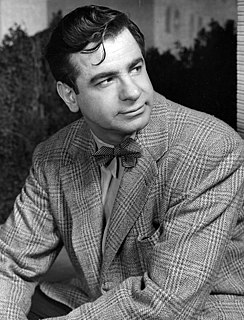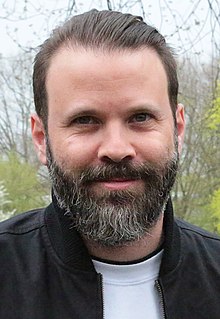A Quote by Bryan Cranston
As a director you come in and tell the actors how good they are.
Related Quotes
Actors, I think, are all the same. Both Korean actors and American actors are all very sensitive people, and they are all curious to know what the director thinks of them and how they are evaluated, and they try to satisfy the director. And they like it if you listen carefully to their opinions and accept them.
I think the key that differentiates the good actors from the mediocre ones that are still trying to come up, is that the good ones know how to listen. It's like being in a jazz band. They know how to listen to what the other musicians are playing. And where to come in and where to sit out. That's my approach to being in an ensemble cast and working with any kind of actors in a scene.
You can give the greatest performance possible, but if you don't have a director who's pointing the camera in the right direction and an editor who's editing it properly, it doesn't matter what you do. The director and the editor are the most important people. Not the actors. Sometimes the writer is important. But if you don't have a good director, you can't have a good production.
Every film you work on is different, and that's part of what it's like for anybody who works on a film, is to learn how to work with others. Learn from top to bottom. Actors have to learn how to work with the director and the director has to learn how to work with actors, and that's not just those two departments.
A good director creates a playground for actors, and lets them go. The trick for a good director is in casting properly, and creating the playroom, and then they'll get stuff that they don't expect, and can't even direct. All the audience wants to believe is that whatever is happening, it is happening for the first time. They want to see the people within the work exchanging dialogue and action in that moment. There are not a lot of actors that can do that.
I think that what's important as a director is to give your actors the feeling that they're protected, the feeling of confidence, the feeling that if they make mistakes, then as a director, you'll know how to help them. If you're able to convey that, then the actors will give you wonderful performances. As well as the author, you have to write scenes that give the actors the opportunity to show what they're capable of.
It`s always been the same for me. I`ve always enjoyed acting, and I really love good actors; they`re such unique characters. I wish I could tell stories well, or tell a joke. Any time someone can do that it`s so satisfying. Sean Penn, for instance, is a really good actor, and he can tell a good joke or story. But it`s hard to do. Most actors have special talents that make them attractive, but they`re often odd characters.
I just think there are a lot of celebrities who don't feel that they have a voice. A lot of actors come from a place of fear, and that's just a general statement about actors. You're terrified the casting director won't like you, you're terrified the producer won't like you, you're terrified the director won't like you, and on and on.
What I learned about acting, from my experiences directing, is why so many producers and directors don't like actors. You go through all of this work securing a location, figuring out how to get electricity there, how to get trucks parked where they need to be, and where catering is going to come from. And if the actors don't come up with some magic, it actually didn't matter. That creates a lot of animosity towards the actors.




































